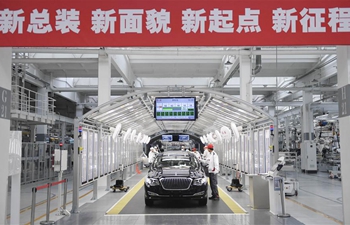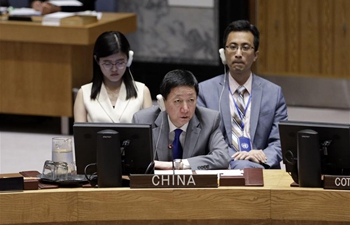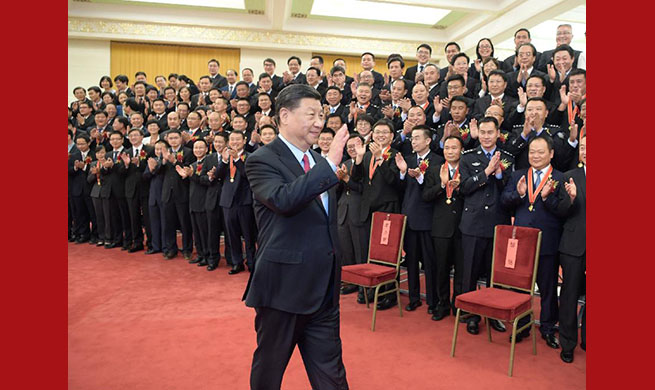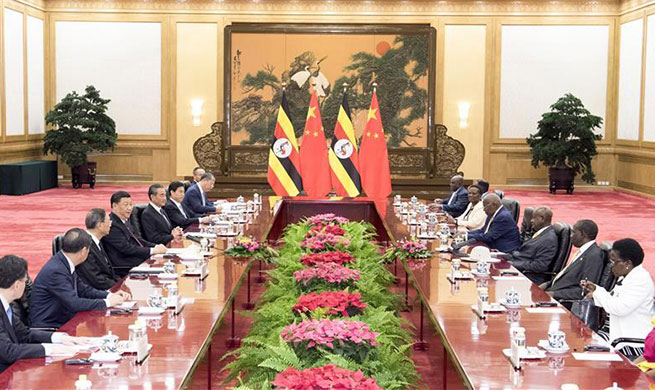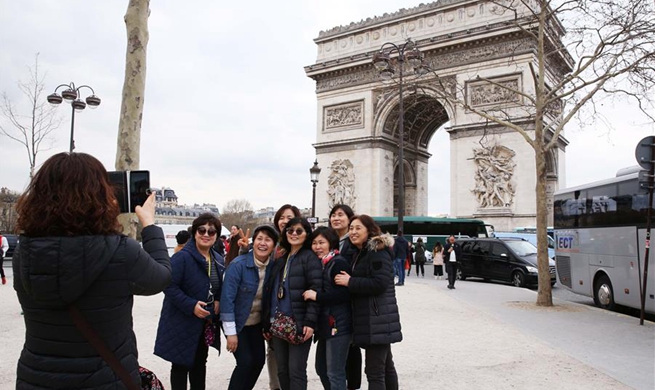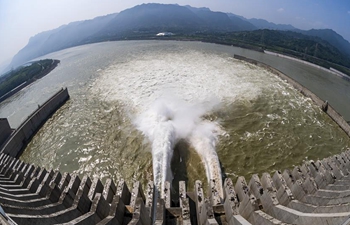CANBERRA, June 26 (Xinhua) -- Countries in the world should join efforts to maintain global economic stability, said several academics in Australian universities before the G20 summit in Japan this month.
"Countries should work together to safeguard the multinational trading schemes and regimes to prevent damage from the U.S.-led conflicts by Trump," said Dr. Shi Xunpeng, principal research fellow at the Australia-China Relations Institute (ACRI).
According to Qian Meijun, professor with the College of Business and Economics in the Australian National University, the trade friction between U.S. and China sent ripples to other countries.
With big export to China, she said, the Australian economy could be hit as well and in fact the Australian dollar had already dropped to the lowest point in 10 years.
"The only option for other countries is to remain committed to free trade governed by rules to get on with the job of completing new initiatives," said Professor James Laurenceson, deputy director of the ACRI.
The view was shared by Dr. Shi, who noted that developing countries "have to take more practical measures and be more active in safeguarding global trading system."
"The Belt and Road (Initiative) might be an effective approach for some of them," he said.
He believed that the drive for economy relied more on technology. "International cooperation and exchange among scientists is a natural need," he said. "When there is no suitable resources in the country, they will seek for help or cooperate with their international counterparts."
Qian Meijun told Xinhua that there were other countries who expected China to help achieve common development. "China is a big country, in terms of GDP, population, and international trade, it has big influence in the region. So other countries expect China to help them develop together," she said.
Meanwhile, some countries are worried about the growth of China. "This is actually quite difficult situation for China -- they expect China to do more but at the same time they don't trust China," she said.
It would be better if the problem can be alleviated, Qian noted. She hopes the G20 summit can help. "I hope that participating countries could cooperate and act positively to reach some agreement, which would be beneficial to people across the world."
Dr. Shi wished that the G20 countries could reaffirm their position on protecting the global trading system and other multilateral regimes which might put the pressure on the U.S. and help to limit the damage.
While for his part, professor Laurenceson said he hoped that "the slide towards protectionism will be arrested, even if it is not turned around."
"Another positive issue would be if the G20 leaders meeting can agree on a communique as their finance ministers and central bank governors did earlier this month," he said.
